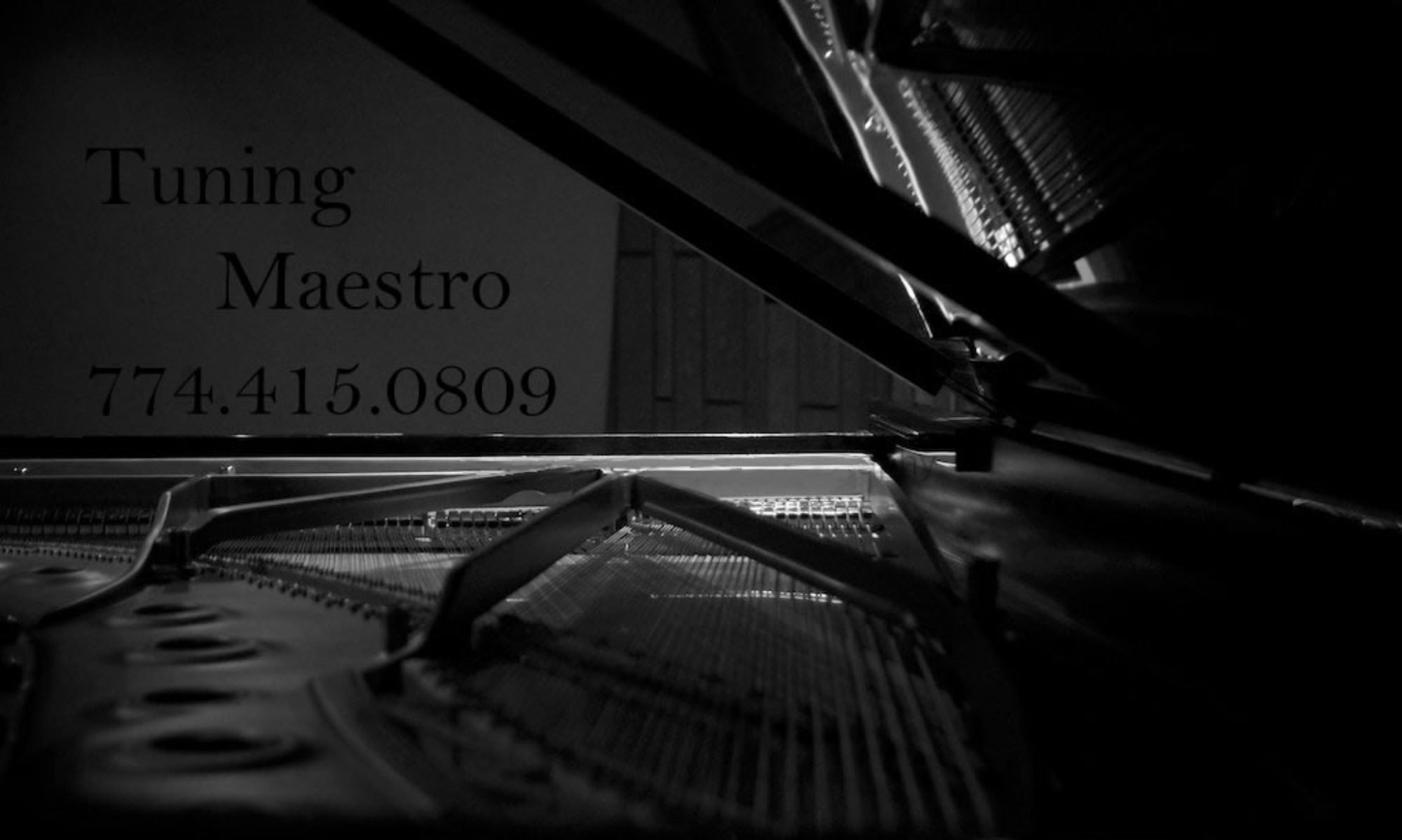Piano strings are under a great deal of tension, and they are supported by the frame, plate, pinblock, tuning pins, bridges and soundboard. Anything that affects the position of any of these parts will cause a change in tension and make the piano go out of tune.
 New pianos – their pitch drops quickly for the first few years as NEW STRINGS stretch and wood parts settle. It’s very important that a new piano be maintained at proper pitch A440 during this period, so the string tension and piano structure can reach a stable equilibrium. Because of this stretching, many new pianos drop a quarter step flat within a few months after each tuning for the first two or three years.
New pianos – their pitch drops quickly for the first few years as NEW STRINGS stretch and wood parts settle. It’s very important that a new piano be maintained at proper pitch A440 during this period, so the string tension and piano structure can reach a stable equilibrium. Because of this stretching, many new pianos drop a quarter step flat within a few months after each tuning for the first two or three years.
 Playing – the louder and more often you play, the faster the piano goes out of tune. This is due to equalization of tension along the length of the strings. A piano given a daily workout by a professional musician or serious student might need to be tuned monthly or even more frequently. Regular tuning keeps your piano sounding best. When you don’t tune your piano regularly, the pitch drops further and further away from where it should be, and it becomes harder for a piano tuner to repair.
Playing – the louder and more often you play, the faster the piano goes out of tune. This is due to equalization of tension along the length of the strings. A piano given a daily workout by a professional musician or serious student might need to be tuned monthly or even more frequently. Regular tuning keeps your piano sounding best. When you don’t tune your piano regularly, the pitch drops further and further away from where it should be, and it becomes harder for a piano tuner to repair.
 Over 200 strings have to maintain tension, which puts a lot of strain on the piano’s structure. If the piano has not been tuned in quite some time (usually 2 years or more), it may require a “Pitch Raise” in order to bring it back up to concert pitch A440 and remain stable. So what the piano tuner has to do is first raise all the strings to their proper average tension levels, and only then can the piano be accurately tuned. Approximate time: 1 to 2 hours
Over 200 strings have to maintain tension, which puts a lot of strain on the piano’s structure. If the piano has not been tuned in quite some time (usually 2 years or more), it may require a “Pitch Raise” in order to bring it back up to concert pitch A440 and remain stable. So what the piano tuner has to do is first raise all the strings to their proper average tension levels, and only then can the piano be accurately tuned. Approximate time: 1 to 2 hours
 Slipping tuning pins are another serious cause especially in an older piano that has been exposed to seasonal humidity changes. The pinblock loses its tight grip on the pins then string tension causes them to rotate slowly, over a period of months, allowing the pitch to go flat.
Slipping tuning pins are another serious cause especially in an older piano that has been exposed to seasonal humidity changes. The pinblock loses its tight grip on the pins then string tension causes them to rotate slowly, over a period of months, allowing the pitch to go flat.
 Temperature changes – fluctuation in room temperature causes less change in tuning than humidity. Seasonal change is the primary reason pianos go out of tune. When HUMIDITY CHANGES, moisture from the air can seep into the wood. The piano’s main acoustical structure, the soundboard, is made of wood – causing the crown to increase and diminish….
Temperature changes – fluctuation in room temperature causes less change in tuning than humidity. Seasonal change is the primary reason pianos go out of tune. When HUMIDITY CHANGES, moisture from the air can seep into the wood. The piano’s main acoustical structure, the soundboard, is made of wood – causing the crown to increase and diminish….
